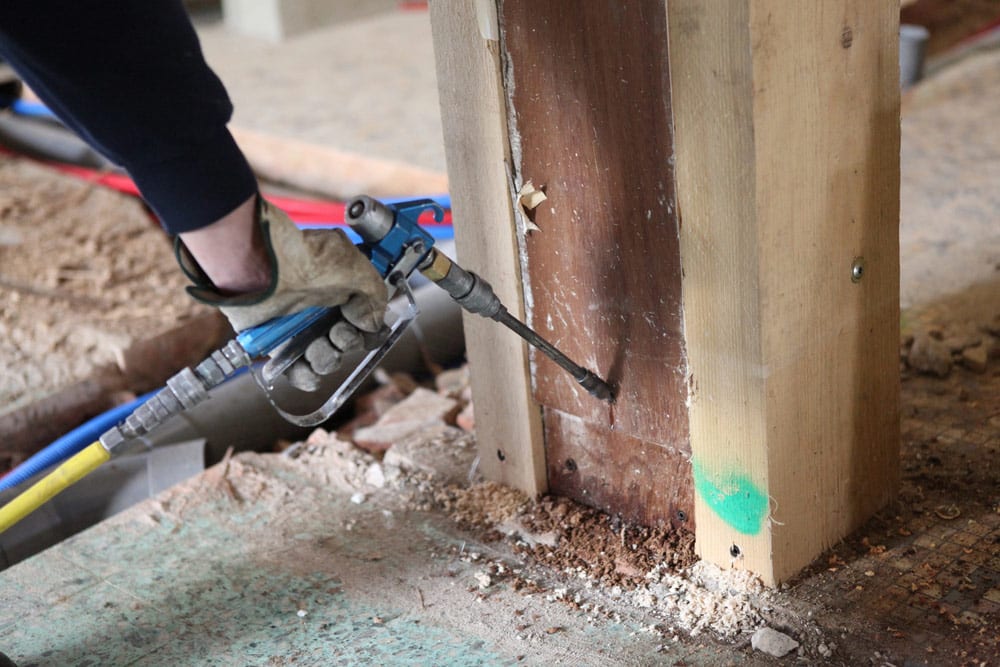Professional Ant Control Services: Customized Therapies for Long Lasting Outcomes
Professional Ant Control Services: Customized Therapies for Long Lasting Outcomes
Blog Article
Environmental Impact of Pest Control: Balancing Effectiveness With Sustainability
The ecological effect of parasite control is a critical issue that needs a fragile equilibrium in between accomplishing effectiveness in guaranteeing and taking care of pests sustainability of our ecosystems. From the usage of harmful chemicals that leak right into our soil and water to the unplanned consequences on non-target types, the effects of standard pest control methods are far-ranging.
Dangerous Chemicals in Insect Control
The usage of harmful chemicals in pest control poses substantial ecological and wellness risks that warrant mindful consideration and mitigation strategies. Herbicides, chemicals, and pesticides are generally utilized to remove parasites, yet their prevalent application can lead to unintended consequences. These chemicals can contaminate soil, water resources, and the air, impacting not only the targeted bugs yet likewise advantageous bugs, wildlife, and human beings.

To deal with these dangers, incorporated parasite administration (IPM) methods are being promoted as an extra sustainable choice. IPM entails a mix of techniques such as organic control, environment control, and the targeted usage of pesticides as a last resource (ant control hickory nc). By adopting a holistic method to pest control, we can decrease the ecological and wellness effects connected with harmful chemicals while effectively managing pest populaces
Effect on Non-Target Species
Taking into consideration the unintended effects of pest control approaches, the influence on non-target types is a critical aspect that requires detailed analysis. While pest control actions intend to target details insects, other organisms in the ecological community might be accidentally affected. Non-target varieties, including beneficial bugs, birds, creatures, and also plants, can endure straight or indirect harm from pesticide applications or biological control methods.
Insecticides created to deal with a certain insect parasite might hurt pollinators like bees or all-natural killers such as ladybugs. Organic control representatives, if not species-specific, can pose threats to unexpected targets, interfering with the eco-friendly equilibrium.
To reduce the effect on non-target varieties, integrated insect administration (IPM) methods that stress a holistic approach to pest control are advised. These methods prioritize making use of eco-friendly methods, lessening damage to helpful microorganisms while effectively taking care of pest populations. Conducting comprehensive risk evaluations and monitoring the end results of parasite control initiatives are essential actions in securing non-target types and advertising general community health.
Dirt and Water Contamination
Unexpected ecological effects of parasite control methods extend beyond impacting non-target species, with significant ramifications for soil and water contamination - termite control services. Pesticides, herbicides, and chemical fertilizers used in pest control can leach right into the dirt and contaminate groundwater, presenting a threat to both look here earthbound and marine ecological communities.
Water contamination is one more vital issue connected with insect control practices. To reduce soil and water contamination from insect control tasks, integrated pest administration methods that focus on sustainability and lessen chemical inputs are critical.
Air Air Pollution From Pesticide Use
Direct exposure to airborne pesticides during agricultural applications poses a substantial worry for air pollution control procedures. Additionally, chemical drift, where pesticides are lugged by the wind to unintentional areas, can lead to the contamination of nearby ecosystems and water bodies.

Methods for Sustainable Pest Control
In the world of farming practices, implementing sustainable insect control strategies is extremely important for preserving ecological equilibrium and securing crop yields. Sustainable pest control highlights the usage of environmentally friendly approaches to take care of parasite populations properly while decreasing injury to non-target organisms and ecological communities. Integrated Bug Administration (IPM) is a widely embraced technique that combines organic, social, physical, and chemical control methods to accomplish long-lasting parasite administration services.
Plant rotation and diversification are additionally reliable techniques to interrupt pest life cycles and produce much less beneficial conditions for parasites to thrive. Eventually, by integrating these sustainable parasite control approaches, farmers can accomplish a balance between pest management effectiveness and environmental stewardship.
Final Thought
In final thought, the environmental influence of insect control methods should be carefully thought about to stabilize efficiency with sustainability. Harmful chemicals utilized in parasite control can result in dirt and water contamination, air contamination, and harm non-target species - ant control services. It is important to implement sustainable insect control methods to lessen these unfavorable impacts on the environment and advertise a healthier ecological community for future generations
By taking on an alternative technique to pest control, we can reduce the ecological and health and wellness influences linked with harmful chemicals while effectively handling pest populations.

To alleviate the air contamination caused by pesticide usage, it is important to embrace integrated bug administration methods that prioritize the usage of non-chemical parasite control approaches, such as crop turning, all-natural predators, and immune plant selections. Lasting parasite control highlights the use of environmentally pleasant approaches to handle pest populations efficiently while lessening damage to non-target organisms and communities. Integrated Insect Monitoring (IPM) is a commonly embraced strategy that combines biological, social, physical, and chemical control methods to accomplish long-term insect administration options.
Report this page